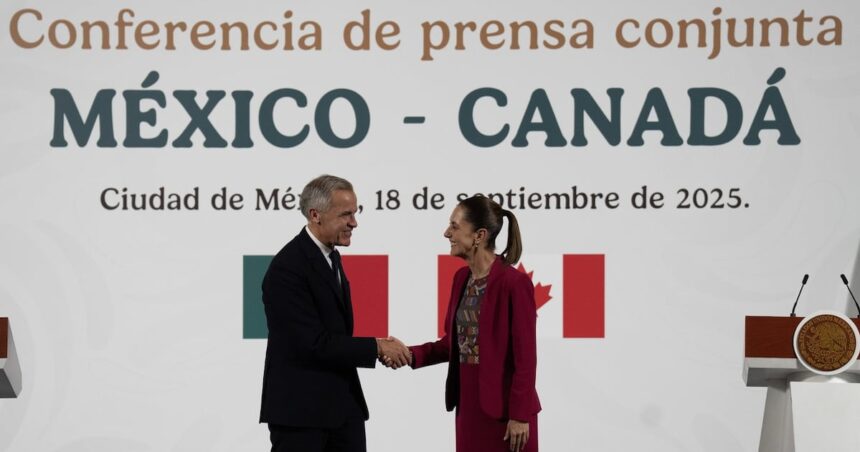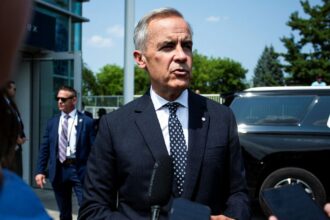In a strategic move to strengthen Canada-Mexico trade relations, Finance Minister Mark Carney toured a bustling Mexico City train yard Thursday, underscoring the critical role of rail infrastructure in North American commerce. The visit marks the second day of Carney’s high-profile diplomatic mission aimed at reinforcing economic partnerships amid shifting global trade dynamics.
“What we’re witnessing here represents the backbone of continental trade,” Carney remarked while observing the constant flow of freight containers being transferred between Canadian and Mexican rail systems. “These rail connections aren’t just moving goods—they’re building prosperity across borders.”
The tour highlighted the often-overlooked yet vital rail networks that facilitate nearly 30% of the $48 billion annual trade between Canada and Mexico. Railway officials briefed Carney on recent technological upgrades that have reduced cross-border transit times by nearly 40% since 2019, creating significant efficiencies for manufacturers in both nations.
Mexico’s Transportation Minister Elena Rodríguez, who accompanied Carney during the visit, emphasized the mutual benefits of continued infrastructure investment. “Our integrated rail systems have weathered supply chain disruptions remarkably well compared to other transportation modes,” Rodríguez noted. “This resilience deserves greater recognition in our trade policies.”
The ministerial visit comes at a pivotal moment as Canada seeks to diversify its trade relationships beyond its traditional dependence on the United States. Economic analysts point to Mexico’s growing manufacturing base and strategic position as increasingly valuable to Canadian export strategies, particularly in automotive, aerospace, and agricultural sectors.
Industry experts observe that Carney’s focus on rail infrastructure signals a broader shift in Canada’s trade approach. “We’re seeing a more holistic view of continental commerce,” explained Dr. Martina Chen, trade economist at the University of Toronto. “By strengthening these logistical arteries, Canada is positioning itself for more resilient supply chains regardless of political winds in Washington.”
The finance minister also met with representatives from Canadian companies operating in Mexico, including Bombardier Transportation, which has expanded its rail manufacturing presence in the country by 35% since 2020. These companies reported that improved rail connectivity has been instrumental in their ability to integrate North American operations efficiently.
Later today, Carney is scheduled to meet with his Mexican counterpart to discuss potential joint investments in critical infrastructure and opportunities to harmonize regulations affecting cross-border commerce. Sources close to the discussions indicate that digital trade facilitation and sustainable transportation initiatives top the agenda.
As global trade patterns continue evolving amid geopolitical tensions and technological change, this visit underscores a fundamental question facing North American economies: Will deeper continental integration provide the resilience needed to navigate an increasingly unpredictable global marketplace?










